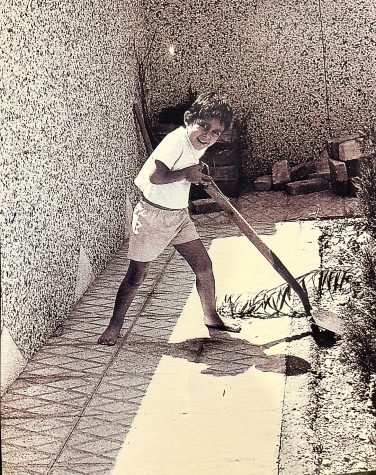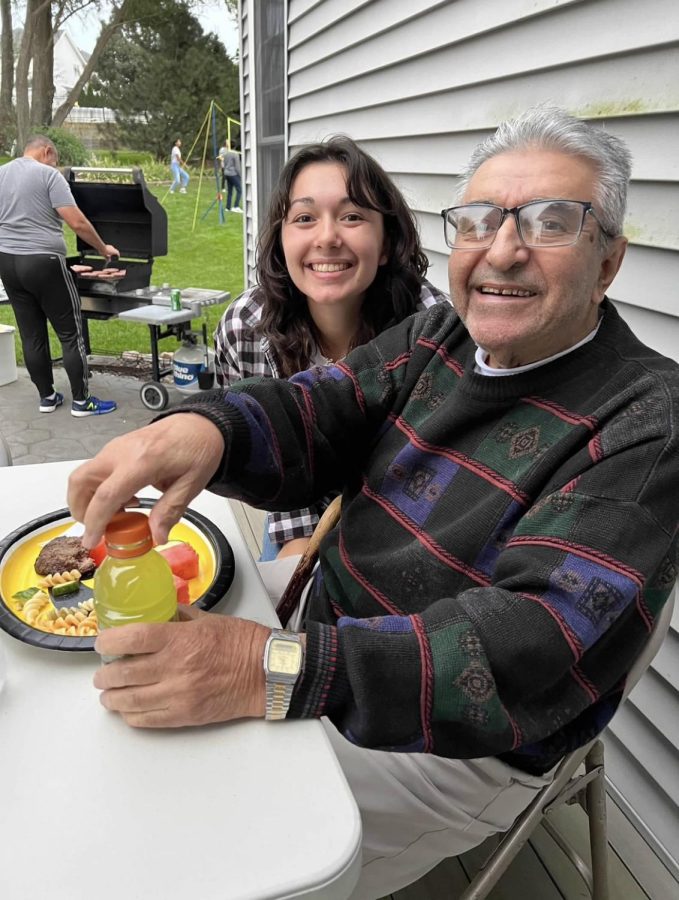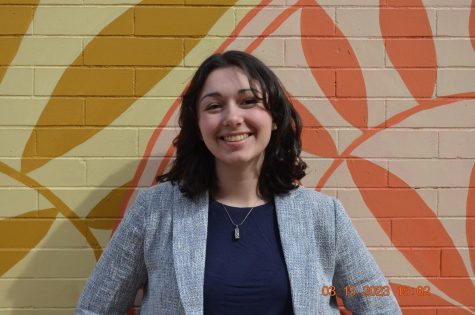While people of color have long been subject to racism and inaccurate portrayals by the media, one of the most prevalent stereotypes is still far from dying out: the Middle Eastern “terrorist.” Living in a society that claims to have strong social awareness and strives for equality, it’s necessary to address the plights of Middle Easterners. However, it seems that the world has become desensitized to Middle Eastern problems, as racist Hollywood portrayals, inaccurate news reports and ignorant political comments further this stereotype.
When negative or tragic news arises from the Middle East, all too often the common response is, “Well, the Middle East is violent. Why is this a surprise?” Whether it be about the Iranian protests, the violations of women’s rights in Afghanistan or military extremists, it seems that the world no longer fully recognizes and addresses what happens in the Middle East.
And the media continues to fuel this thinking.
In Jack Shaheen’s documentary “Reel Bad Arabs,” he analyzed over one thousand films made between the 1896 and 2000 featuring Arab characters. Of those films, 935 had negative portrayals, 53 were neutral and a mere 12 representations were positive.
First airing in 2015, “Quantico” features a Lebanese-born character named Raina Amin who becomes an FBI agent to fight terrorism. Not only does her character play into the heavy stereotypes about Middle Easterners, but Amin’s twin sister is revealed to be a supporter of the same terrorist group that she is fighting to bring down.
Even the beloved and critically acclaimed American sitcom “Roseanne” is not free of racist character portrayals. In an episode of the 2018 reboot, Roseanne is revealed to have new Muslim neighbors. Uncoincidently, Roseanne believes her neighbors are building a bomb in an attempt to blow up the neighborhood, further perpetuating negative stigmas about the Middle East.
Junior Sophia Foad, whose family is from Afghanistan, finds it impossible to ignore the Middle Eastern stereotypes in movies and film. “It’s frustrating to watch that because it seems the only thing that entertainment media recognizes the Middle East for is terrorism and bombings,” she said. “In reality, there is a lot more beauty than the region is recognized for.”
And this is not just an issue that exists in fiction.
Within the first week of his presidency, former President Donald Trump authorized three Muslim bans. Though they were all blocked by courts, the Trump administration amplified its efforts to institutionalize Islamophobia. “Islam hates us,” Trump was reported saying.
Trump’s fellow Republican, Representative Majorie Taylor Greene, appeared in an online video arguing with Reps. Ilhan Oman and Rashida Tlaib, both of whom are Muslim. Greene claimed that the two weren’t official members of Congress because they did not take the oath of office on the Bible. “I really want to go talk to these ladies and ask them what they are thinking, and why they are serving in our American government,” Greene was heard saying. “They really should go back to the Middle East.”
These anti-Middle East and xenophobic messages brainwashed Trump and Greene’s followers, leading them to believe inaccurate statements about the Middle East. Instead of viewing Middle Easterners as fellow humans, they were urged to view them as terrorists or extensions of destructive and tyrannical governments.
Senior Elyanna Toulou finds that these messages from politicians hinder global improvement. “People can stop caring about issues when they hear this. When people don’t care, people stop advocating for change in the world,” she said. “People start simply accepting issues and slowly forgetting them.”
Unfortunately, news outlets often echo these politicians’ sentiments, subtly intertwining racism into reports about the Middle East.

In the initial weeks of Russia’s invasion of Ukraine, a CBS news reporter, live and on-air, called Ukraine civilized when comparing it to Iraq or Afghanistan. “Now with the Russians marching in, it’s changed the calculus entirely. Tens of thousands of people have tried to flee the city. There will be many more, people are hiding out in bomb shelters,” he said. “But this isn’t a place, with all due respect, like Iraq or Afghanistan that has seen conflict raging for decades. This is a relatively civilized, relatively European city where you wouldn’t expect that hope that it’s going to happen.”
Though CBS news and Al Jazeera English later issued an apology for the reporter’s “poor choice of words,” the damage was already done. And this was not the only time an incident like this has happened.
NBC News correspondent Kelly Cobiella highlighted the fact that, unlike Syrian refugees, the Ukrainian refugees were Christian and white. “Just to put it bluntly, these are not refugees from Syria, these are refugees from neighboring Ukraine. That, quite frankly, is part of it,” she said. “These are Christians, they are white, they’re very similar to the people that live in Poland.”
An interviewee for BBC said that, “It’s very emotional for me because I see European people with blue eyes and blonde hair being killed.”
By separating refugees into “us versus them,” it removes the empathy that people should feel towards refugees, regardless of what country they come from.
Foad has recognized these racist trends and the hypocrisy of such statements. “A long living stereotype that is most prominent about Middle Eastern people is that we are all terrorists and people to fear,” she said. “I feel like society decides to fear us, which is frustrating because white Americans commit terrorist attacks, but the media doesn’t report on that.”
Desensitization to violent exposure has become a normalized practice. The impacts of the desensitization to the Middle East due to Hollywood, politics and the news hinders social improvement.
When people become quick to categorize an entire region as violent and excuse social issues and human rights violations as simply “normal for a country,” people lose their ability to connect with others to seek understanding and empathy.
Foad is discouraged when she watches or hears about the news because of the blatant racism and ignorance of reporters. “As an Afghan, whenever I watch the news about events in Afghanistan, it’s hard to watch American news reporters talk about the issues. It’s as if they don’t recognize the reality of the struggles,” she said. “It seems that they have come to expect violence from Middle Eastern countries. Because news reporters are desensitizing the reality of the issues, it makes Americans unaware, uneducated and disinterested in the culture of the Middle East.”
Even at PVHS, this desensitization is reverberated within the halls. As of Feb. 14, the death toll of the Syria and Turkey earthquakes tops 41,000. When having a class discussion about the earthquakes, a student said that Syria deserved what happened because “the country is already f***** up.”
As horrendous and insensitive this comment was, is it even possible to blame individuals for these desensitized views? As seen in the media and politics, violence and terrorism is nearly all that is shown of the Middle East. When this is the only message depicted, it makes empathy and compassion a far-fetched goal.
It is pertinent that society acknowledges these biases and inaccurate portrayals that have resulted in desensitization. Otherwise, the vicious and cold cycle of violence and hate is all that society will continue to associate with the Middle East.









